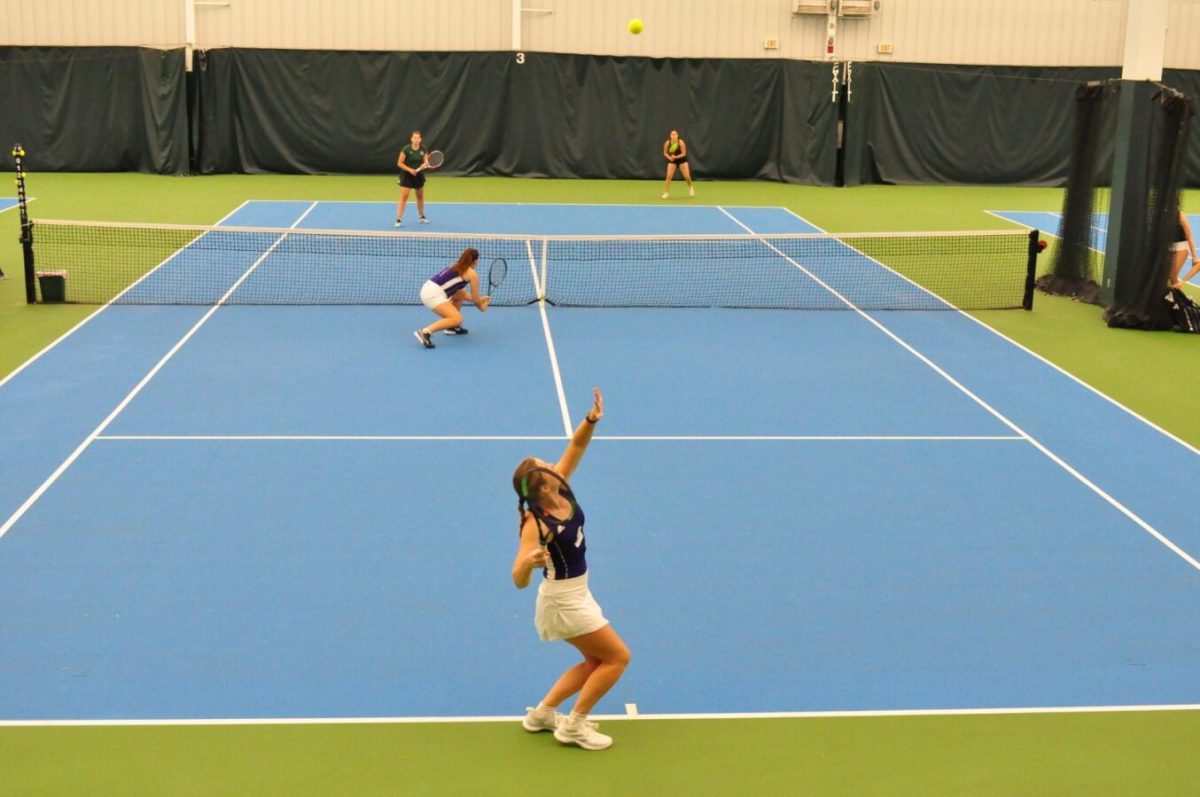
Cole Fuecker, trained by players now in professional baseball, plays baseball for Winona State University. Humble and passionate, this team player had two pit stops before starting for Winona, in Iowa first, then Oklahoma. He states: “In my career, I’ve been a part of a lot of great baseball teams, but in Winona, it’s my first year […] the guys are great, the team is meshing well, we have a pretty new team and there’s a lot of transfers that are freshmen, but it’s been great.”
Fuecker, from Sauk Rapids, is a fifth-year business administration major, planning on coming back next year to begin his master’s in sports management and play his sixth-year of college baseball. “I’m going to end up graduating here in May, though I do have another year of eligibility, so the plan is to come back start my masters in sports management and play my last year of college ball,” Fuecker said. “After that, we’ll see where the pieces fall but I’m looking to play baseball after college so hopefully I can keep it up, […] keep my body healthy.” Now, he isn’t going to be on Winona State’s baseball team forever, after he graduates in May he has one more year. He still intends on staying involved with the sport but rather than maintaining his position as a player, he hopes to possibly become a coach.
For the people unsure of what ‘eligibility’ is, in college sports, you are only given four years of ‘eligibility.’ That number can change depending on things like medical reasons (called medical red shirts) or sitting out for other reasons (red shirts). “It’s been kind of funky these past years in college athletics in general with COVID,” Fuecker said. “I was granted an extra year from that, then being at a junior college granted me another”. In total, that means he could play for six years of college sports. So far, he’s only been here for a year. But even then, when we talked about best with the team, he mentioned, “We went down to Florida, and it was a great time, got the opportunity to face some good competition.” Even though there wasn’t a single greatest moment he could pinpoint, I think that shows how many greats you have.
As well as other players, his goals demonstrate discipline and victory, stating “The only goal I really set for myself is just to compete every day, you know give one-hundred percent effort and let the pieces fall where they may. Big goals that I have are winning games and winning the conference championship.”
Pressing even further into goals, I asked him about his individual goals for baseball, “I don’t really look into individual goals as much as you can kind of get into a little rabbit hole” and then he made it about the team, “but I think the statistics lie where they will when the teams playing well, and everybody starts to piggyback off each other” demonstrating his ultimate care for the sport, as well as the team.
Like most sports, there is an unmeasurable amount of knowledge and skill it takes to compete in college or professional settings. “I was fortunate enough to be coached by multiple guys that are now in professional baseball,” he said. He also gave me a little insight into what he has overcome to get where he is; “they helped me tremendously within all aspects of the game, my swing defense, IQ.” He then provided advice useful for anybody in baseball. “I’d say to the younger guys, it’s hard to take a bat out of the lineup, so if you can learn to hit early it will definitely benefit you.
Since he’s demonstrated a heart for the team, I asked him for something he would hope to leave with his team members, providing me with this powerful quote. “When it comes down to it nobody is going to remember the statistical side of things, nobody’s going to remember who had the last hit, or the last out, or the last strikeout,” Fuecker said. “It’s going to be the camaraderie of the guys, the lifelong friendships.”
Concluding our interview, he acknowledges the familial-like relationships that the team environment has created.
“You know, these guys will never go away, I mean you’re with them every single day for multiple hours of the day,” he said.” Long bus rides, in classes together, it all just helps build that strong connection with each other.”








































